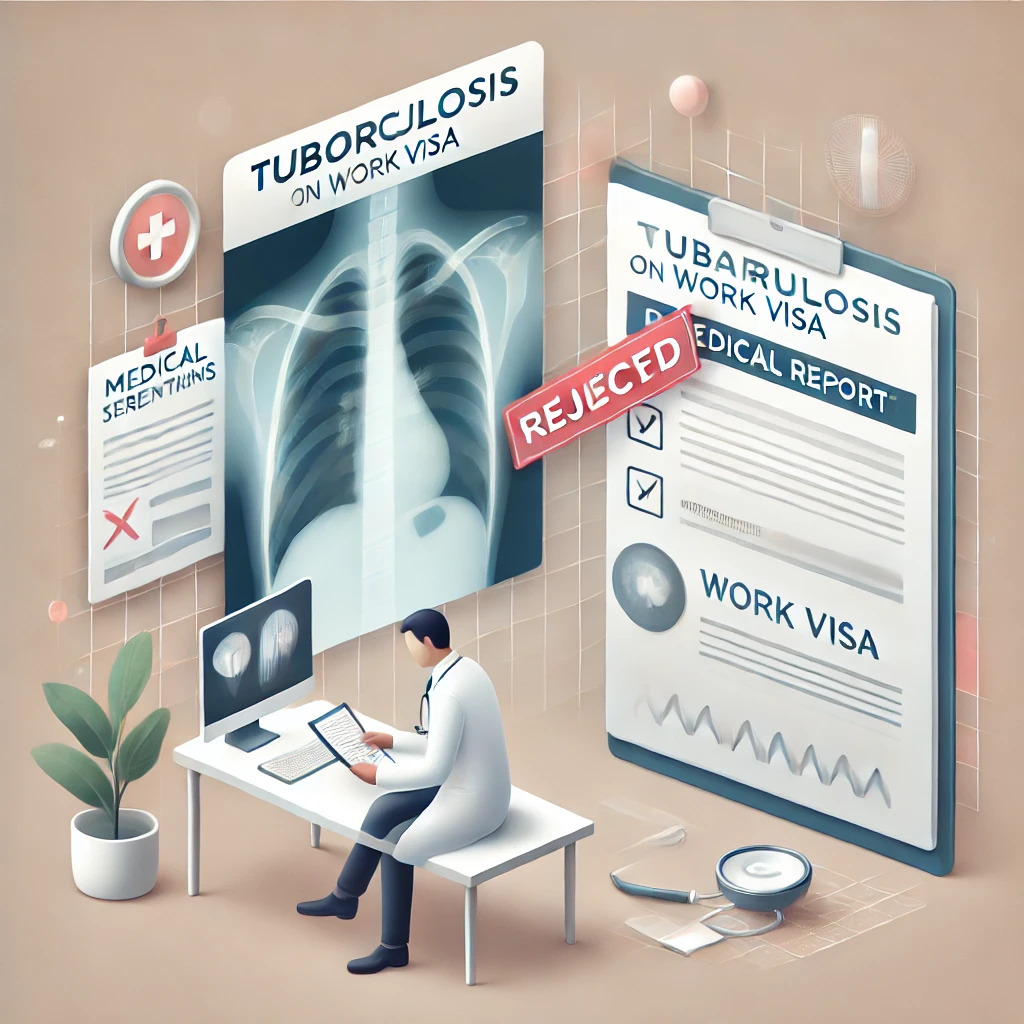The Impact of Tuberculosis on Work Visa Approval
When applying for a work visa, many countries require a medical examination, particularly for individuals travelling to Gulf Cooperation Council (GCC) nations. Tuberculosis (TB), a contagious bacterial infection of the lungs, is one of the most serious illnesses assessed in these medical examinations. Many nations have strict health policies in place to combat tuberculosis because of the potential public health implications.
Applicants with active tuberculosis are frequently denied visas or have their applications delayed as authorities try to limit the spread of contagious diseases within their borders. If a medical test reveals active tuberculosis, the visa application may be put on hold, requiring the applicant to complete treatment before reapplying. Some countries even put a temporary prohibition on candidates diagnosed with tuberculosis, limiting their ability to reapply for a set period following successful treatment.
The Medical Screening Process for Tuberculosis
Candidates for a work visa medical examination go through a variety of tests, including chest X-rays and sputum analysis, to look for evidence of tuberculosis. If a chest X-ray indicates abnormalities, additional diagnostic procedures are performed to determine the presence of active tuberculosis. Those diagnosed with latent tuberculosis, which implies the infection is present but dormant, may be able to proceed with their application, depending on the country’s immigration health laws. However, active tuberculosis cases often result in prompt visa denial.
Medical screening guarantees that only people who fulfil the necessary health criteria are allowed in. Individuals who have recovered from tuberculosis may be required to provide further medical documents demonstrating that they have completed treatment and are no longer contagious. Countries with strict health standards frequently require a medical clearance report before processing a visa application for previously diagnosed individuals.
Steps to Take if Diagnosed with Tuberculosis
If a candidate is diagnosed with tuberculosis during the visa medical check, they should seek prompt treatment. Most health authorities recommend that patients complete a full course of tuberculosis treatment, which can last anywhere from six months to a year depending on the severity of the infection. Once treatment is completed, applicants must receive a medical clearance certificate to show that they have recovered.
Individuals with a history of tuberculosis but who are now healthy should speak with a medical practitioner before applying for a visa. Some nations enable previously treated candidates to reapply with documented proof of recovery, such as negative TB test results and a physician’s approval.
Conclusion
Medical diseases such as tuberculosis can have a substantial impact on work visa applications, resulting in delays or outright refusal. Individuals with a history of tuberculosis should understand the medical screening procedure, seek timely treatment, and collect the relevant medical documentation. By adhering to health rules and guaranteeing complete recovery, applicants can increase their prospects of obtaining a work visa and exploring employment opportunities overseas.




